Find Help
More Items From Ergsy search
-

Cervical screening: Q&A | NHS
Relevance: 100%
-

The NHS is #StillHereToHelp with cervical screening
Relevance: 96%
-

What is cervical screening (smear test)?
Relevance: 93%
-

Cervical screening: what to expect | NHS
Relevance: 92%
-
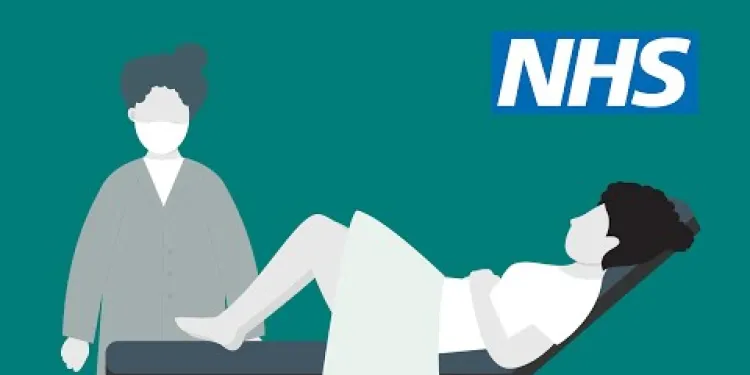
Cervical screening: how it's done | NHS
Relevance: 92%
-

Cervical screening for transgender men | NHS
Relevance: 92%
-

Cervical screening: what to expect | NHS
Relevance: 91%
-

NHSGGC - Cervical Cancer Screening - English
Relevance: 91%
-

When should cervical cancer screening begin?
Relevance: 89%
-

Don’t ignore your cervical screening invite | NHS
Relevance: 86%
-

Cervical screening (smear test) – what’s it all about?
Relevance: 86%
-

Accessing cervical screening with the right support for people with a learning disability
Relevance: 82%
-

Cervical screening for women who have experienced sexual assault | NHS
Relevance: 81%
-
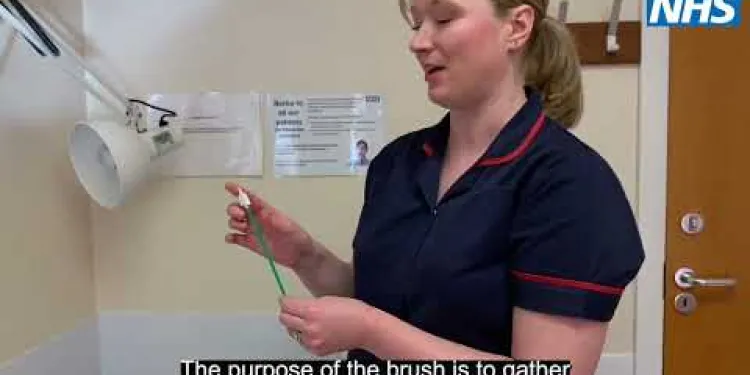
Booked in for your smear test (cervical screening) and not sure what to expect?
Relevance: 78%
-

What is the link between HPV and cervical cancer?
Relevance: 70%
-

Health Screenings You Should Know About
Relevance: 59%
-

What kinds of cancer screening are available?
Relevance: 58%
-

What is cancer screening?
Relevance: 56%
-
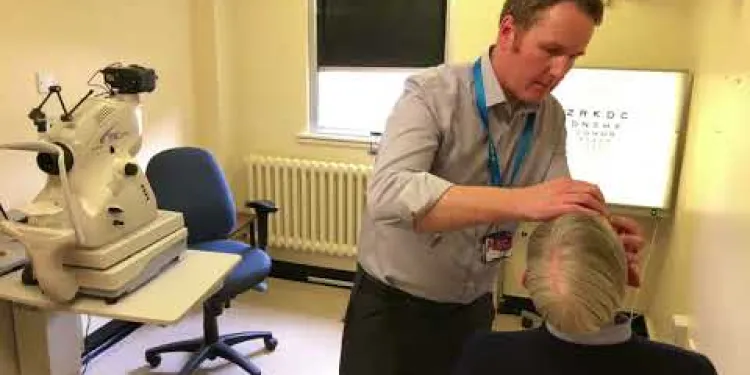
Derbyshire Diabetic Eye Screening - Diabetic Eye Screening
Relevance: 40%
-
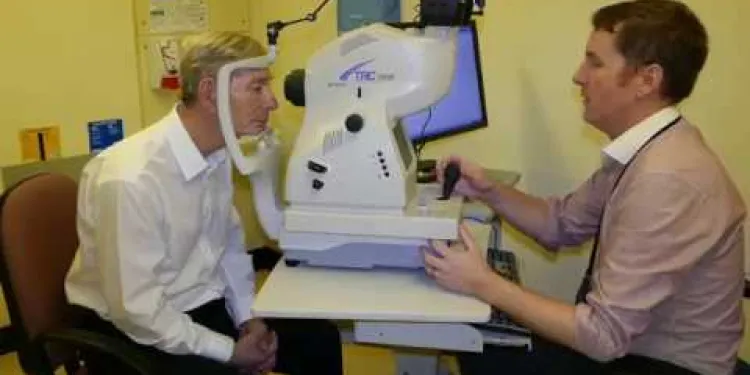
Derbyshire Diabetic Eye Screening - Your Screening Appointment
Relevance: 40%
-

Diabetes Eye Screening
Relevance: 39%
-

Is HPV testing available?
Relevance: 39%
-

AI Breast Cancer Screening in the UK
Relevance: 39%
-
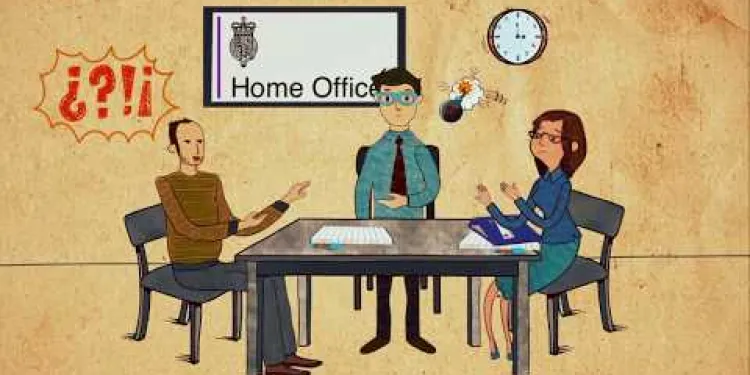
The asylum screening interview
Relevance: 39%
-

NHS breast cancer screening
Relevance: 38%
-

Are there eco-friendly mosquito screen options?
Relevance: 38%
-

Are mosquito window screens effective in the UK?
Relevance: 38%
-

Are Mosquito window screens effective?
Relevance: 38%
-

Are there retractable mosquito screens available?
Relevance: 38%
-

Is screening painful or risky for my child?
Relevance: 38%
-
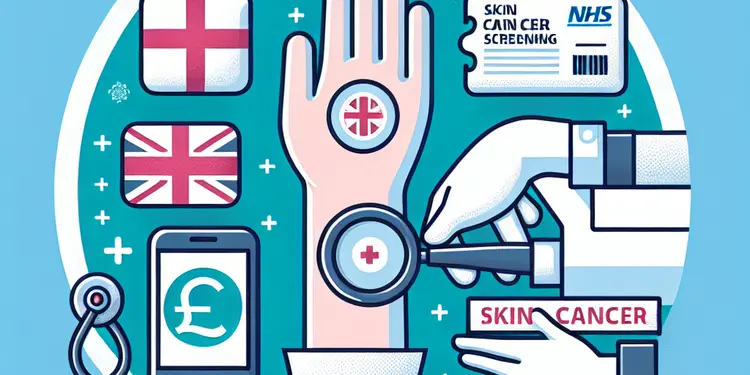
What is a skin cancer screening?
Relevance: 38%
-

How do I maintain my mosquito screens?
Relevance: 37%
-

Can pets damage mosquito screens?
Relevance: 36%
-

Do mosquito screens add value to my home?
Relevance: 36%
-

Is genetic screening available for cancer risk?
Relevance: 36%
-

Are mosquito screens effective against midges?
Relevance: 36%
-

AAA (Abdominal aortic aneurysm) screening
Relevance: 36%
-

What are the limitations of type 1 diabetes screening?
Relevance: 36%
-

Do mosquito screens provide insulation benefits?
Relevance: 36%
-

Can HPV lead to cancer?
Relevance: 36%
The NHS is #StillHereToHelp With Cervical Screening
Understanding Cervical Screening
Cervical screening, often referred to as a smear test, is a crucial part of women's healthcare in the United Kingdom. Managed by the NHS, this preventative measure aims to detect abnormal cells on the cervix that could develop into cervical cancer if left untreated. Women aged 25 to 64 are invited for regular screening, providing an essential opportunity for early detection and intervention.
Importance of Regular Screening
Regular cervical screening can save lives. It is estimated that the NHS cervical screening program prevents around 70% of cervical cancer deaths. The test identifies potentially harmful changes before they become cancerous, enabling timely treatment and significantly improving outcomes. Despite the strain on health services caused by the COVID-19 pandemic, the NHS is #StillHereToHelp ensure women have access to this vital service.
The Process of Cervical Screening
The screening process is straightforward and typically takes only a few minutes. A small sample of cells is taken from the cervix using a soft brush. This sample is then sent to a lab for testing. It’s normal to feel a bit uncomfortable during the test, but it shouldn’t be painful. Women are encouraged to attend their appointments and speak to their healthcare provider if they have any concerns or questions about the procedure.
NHS Safety Measures
The NHS has implemented robust safety measures to ensure that cervical screening appointments are safe for everyone. Clinics and healthcare providers are adhering to stringent hygiene protocols, including the use of personal protective equipment (PPE), regular cleaning of facilities, and social distancing where possible. If you receive an invitation for cervical screening, rest assured that every precaution has been taken to protect your health.
How to Book Your Screening
If you are due for a cervical screening or have missed your appointment due to the pandemic, contact your GP to book an appointment. The NHS is committed to helping you stay healthy, and rescheduling your screening is a step towards safeguarding your well-being. Whether you’re attending your first screening or a follow-up, the NHS is ready to support you.
Conclusion
The NHS remains dedicated to women's health, and cervical screening is a key component of this commitment. By attending your screening appointments, you are taking a proactive step towards preventing cervical cancer. Remember, the NHS is #StillHereToHelp you maintain your health and well-being through regular cervical screening.
The NHS is #StillHereToHelp With Cervical Screening
Understanding Cervical Screening
Cervical screening is also called a smear test. It's important for women’s health in the UK. The NHS does these tests to check for abnormal cells in the cervix. These cells might turn into cervical cancer if not treated. Women aged 25 to 64 are invited for these tests. This helps to find and fix problems early.
Importance of Regular Screening
Regular cervical screening can save lives. The NHS screening program helps prevent about 70% of cervical cancer deaths. The test finds harmful changes before they turn into cancer. This means doctors can treat problems early and help you get better. Even with COVID-19, the NHS is #StillHereToHelp. Women can still go for this important health check.
The Process of Cervical Screening
The screening is simple and quick. A doctor or nurse takes a small cell sample from your cervix with a soft brush. This sample goes to a lab for testing. You might feel a bit uncomfortable, but it shouldn’t hurt. It’s important to go to your appointment. If you have any worries or questions, talk to your nurse or doctor.
NHS Safety Measures
The NHS makes sure cervical screening is safe for everyone. Clinics and healthcare providers follow strict cleanliness rules. They use safety equipment, clean regularly, and follow social distancing. If you get a letter for a screening, know that they are taking care of your health.
How to Book Your Screening
If you need a cervical screening or missed one because of COVID-19, call your GP to book it. The NHS wants to help you stay healthy. Booking your screening helps keep you well. Whether it’s your first test or a follow-up, the NHS is ready to help.
Conclusion
The NHS cares about women’s health, and cervical screening is a big part of this. By going to your screenings, you help stop cervical cancer. Remember, the NHS is #StillHereToHelp you stay healthy with regular cervical screenings.
Frequently Asked Questions
What is cervical screening?
Cervical screening (a smear test) checks the health of your cervix. It’s a way to help prevent cancer by finding and treating any abnormalities early.
Who is eligible for cervical screening?
In the UK, women and people with a cervix aged 25 to 64 are invited for regular cervical screening.
How often should I get screened?
You should get screened every 3 years if you’re aged 25 to 49, and every 5 years if you’re aged 50 to 64.
How can I book a cervical screening appointment?
You can book an appointment by contacting your GP surgery or local sexual health clinic.
Is cervical screening painful?
Cervical screening might be uncomfortable, but it should not be painful. If you experience pain, let the nurse or doctor know.
How long does the procedure take?
The cervical screening procedure itself takes about 5 minutes, although you may be in the appointment for around 10 to 15 minutes.
What should I do to prepare for a cervical screening?
You don't need to do much preparation. It's best to avoid being on your period, and you may feel more comfortable wearing a skirt or dress.
What if I miss my screening appointment?
If you miss your appointment, contact your GP surgery to reschedule it.
What do the results mean?
Results will indicate if your cervix is healthy, or if you need further tests. An abnormal result doesn’t mean you have cancer but that further tests are needed.
Are there any risks associated with cervical screening?
Cervical screening is very safe. The main risk is feeling a bit of discomfort during the procedure.
Can I refuse cervical screening?
Yes, cervical screening is voluntary. However, it’s an important test that could help detect health issues early.
What happens if abnormal cells are found?
If abnormal cells are found, you will be called back for further tests, which may include a colposcopy.
Can pregnant women have cervical screening?
Routine cervical screening is usually postponed until after pregnancy. However, if you’re due for a screening and it’s urgent, consult your GP.
Is there a charge for cervical screening?
No, cervical screening is free of charge under the NHS.
What happens during the screening?
A small sample of cells will be taken from your cervix using a soft brush. These cells are then tested for abnormalities.
What is cervical screening?
Cervical screening is a test. It checks the health of your cervix.
The cervix is the lower part of the womb.
This test helps stop you from getting a disease called cervical cancer.
If you need help to understand, ask someone you trust or use a picture guide.
Cervical screening, also called a smear test, checks if your cervix is healthy. It helps stop cancer by finding and fixing problems early.
Who can have a cervical screening test?
A cervical screening test checks the health of your cervix. The cervix is the lower part of your womb. It helps keep you healthy.
Here is who can have a test:
- Women or people with a cervix.
- Aged 25 to 64.
- Get a letter inviting you to have a test.
Tips to help:
- Ask someone you trust to explain it.
- Visit your doctor or nurse to talk about the test.
- You can use pictures or videos to help understand.
In the UK, women and people with a cervix between 25 and 64 years old are asked to come for regular checks.
How often should I get checked by a doctor?
If you are between 25 and 49 years old, you should get checked every 3 years. If you are between 50 and 64 years old, you should get checked every 5 years.
How do I book a cervical screening appointment?
Here's how you can make an appointment for a cervical screening:
- Talk to your doctor: You can call your doctor's office to make an appointment. Ask them to help you book a cervical screening.
- Visit a clinic: You can also visit a health clinic. The staff there can help you set up an appointment for the screening.
- Use online services: Some clinics have websites where you can book appointments online. Ask someone to help you if using a computer is tricky.
Helpful tips to remember:
- Bring a friend or family member to support you if it makes you feel comfortable.
- Ask any questions you have before your appointment. It's okay to ask!
You can make an appointment by calling your doctor’s office or the local sexual health clinic.
Does a cervical screening hurt?
Cervical screening might be a bit uncomfortable, but it should not be very painful. You might feel a little pressure or a small pinch.
If you are worried or if it does hurt, tell the nurse or doctor. They can help you feel more comfortable.
It's okay to ask questions and take your time. You can bring a friend or family member with you if it helps.
Getting checked for cervical health might feel a bit uncomfortable, but it should not hurt. If it hurts, tell the nurse or doctor.
How long does it take?
The test to check your cervix takes about 5 minutes. But you might be at the appointment for around 10 to 15 minutes in total.
How can I get ready for a cervical screening?
Cervical screening checks the health of your cervix. The cervix is inside your body, at the top of the vagina. Here is how you can get ready for the test:
- Wear comfy clothes. This helps you feel relaxed.
- If you have a period, wait until it finishes before going for the test.
- If you are worried, tell the nurse or doctor. They can help you feel better.
- Ask a friend or family member to come with you if it makes you feel comfortable.
If you find reading hard, you can ask someone to read this to you. You can also use a listening app to hear the information out loud.
You don’t need to get ready a lot. It’s best not to go if you are on your period. You might feel better if you wear a skirt or a dress.
What happens if I miss my check-up visit?
If you miss your doctor’s appointment, call or visit your doctor’s office to make a new appointment.
What do the results mean?
This is what the results show.
You did a test or looked at something. The results tell you what happened or what is true.
If you are not sure what it means, ask someone to help. There are also tools like text-to-speech apps that can read the results out loud to you.
The test will show if your cervix is healthy or if you need more tests. An abnormal result doesn't mean you have cancer. It just means more tests are needed to be sure.
Are there any risks when you have a cervical screening test?
Cervical screening is really safe. The biggest worry is that it might not feel nice when it happens.
Can I say no to cervical screening?
Yes, cervical screening is your choice. But it is an important test. It can help find health problems early.
What if doctors find strange cells?
If the test finds cells that don't look normal, you will need to go back to the doctor for more tests. These tests might include a closer look called a colposcopy.
Here's how a colposcopy can help:
- It lets the doctor look closely at the cervix, which is inside the body.
- Sometimes the doctor might take a small sample to check more carefully.
If you feel worried, you can bring a friend or family member with you for support. Talking to the doctor or nurse and asking questions can also help you understand what's happening.
There are tools and techniques that can make reading easier and less stressful:
- Using a ruler or your finger to follow the lines as you read.
- Listening to the information if it's available in audio format.
- Taking breaks when you need to, so you don't get too tired.
Remember, it's important to ask questions and talk about anything that worries you with your doctor or nurse. They are there to help and support you.
Can pregnant women have cervical screening?
Pregnant women might need a cervical screening test. But it is best to wait until after the baby is born. If you are pregnant and need a test, talk to your doctor or nurse. They will help you decide what to do.
Here are some helpful tips:
- Ask someone you trust for help understanding the test.
- You can use pictures or videos about cervical screening to learn more.
- Write down questions you have and ask your doctor or nurse.
Cervical screening checks are usually delayed until after you have your baby. But, if your screening is very important, talk to your doctor about it.
Do you have to pay for a cervical screening test?
If you are wondering if you need to pay money for a cervical screening test, we can help. You can also use tools like a dictionary to understand words better or ask someone you trust to help explain things.
No, getting checked for cervical cancer is free with the NHS.
What happens during the check-up?
When you go for a check-up, here is what you can expect:
- Someone will talk to you and ask questions. This helps them understand how you are feeling.
- You might have some simple tests. These are not scary and don't hurt. They help the doctor see how healthy you are.
- If you don't understand something, you can ask the person to explain it. It's okay to ask questions!
- A grown-up you trust, like a parent or carer, can stay with you during the check-up if you like. They can also help you understand what is happening.
If you feel nervous, try doing some deep breathing or counting to 10. This can help you relax.
The doctor will use a soft brush to take a few cells from your cervix. These cells are then checked to see if anything is wrong.
Useful Links
Have you found an error, or do you have a link or some information you would like to share? Please let us know using the form below.
-->
This website offers general information and is not a substitute for professional advice.
Always seek guidance from qualified professionals.
If you have any medical concerns or need urgent help, contact a healthcare professional or emergency services immediately.
Some of this content was generated with AI assistance. We’ve done our best to keep it accurate, helpful, and human-friendly.
- Ergsy carfully checks the information in the videos we provide here.
- Videos shown by Youtube after a video has completed, have NOT been reviewed by ERGSY.
- To view, click the arrow in centre of video.
- Most of the videos you find here will have subtitles and/or closed captions available.
- You may need to turn these on, and choose your preferred language.
- Go to the video you'd like to watch.
- If closed captions (CC) are available, settings will be visible on the bottom right of the video player.
- To turn on Captions, click settings .
- To turn off Captions, click settings again.
More Items From Ergsy search
-

Cervical screening: Q&A | NHS
Relevance: 100%
-

The NHS is #StillHereToHelp with cervical screening
Relevance: 96%
-

What is cervical screening (smear test)?
Relevance: 93%
-

Cervical screening: what to expect | NHS
Relevance: 92%
-

Cervical screening: how it's done | NHS
Relevance: 92%
-

Cervical screening for transgender men | NHS
Relevance: 92%
-

Cervical screening: what to expect | NHS
Relevance: 91%
-

NHSGGC - Cervical Cancer Screening - English
Relevance: 91%
-

When should cervical cancer screening begin?
Relevance: 89%
-

Don’t ignore your cervical screening invite | NHS
Relevance: 86%
-

Cervical screening (smear test) – what’s it all about?
Relevance: 86%
-

Accessing cervical screening with the right support for people with a learning disability
Relevance: 82%
-

Cervical screening for women who have experienced sexual assault | NHS
Relevance: 81%
-

Booked in for your smear test (cervical screening) and not sure what to expect?
Relevance: 78%
-

What is the link between HPV and cervical cancer?
Relevance: 70%
-

Health Screenings You Should Know About
Relevance: 59%
-

What kinds of cancer screening are available?
Relevance: 58%
-

What is cancer screening?
Relevance: 56%
-

Derbyshire Diabetic Eye Screening - Diabetic Eye Screening
Relevance: 40%
-

Derbyshire Diabetic Eye Screening - Your Screening Appointment
Relevance: 40%
-

Diabetes Eye Screening
Relevance: 39%
-

Is HPV testing available?
Relevance: 39%
-

AI Breast Cancer Screening in the UK
Relevance: 39%
-

The asylum screening interview
Relevance: 39%
-

NHS breast cancer screening
Relevance: 38%
-

Are there eco-friendly mosquito screen options?
Relevance: 38%
-

Are mosquito window screens effective in the UK?
Relevance: 38%
-

Are Mosquito window screens effective?
Relevance: 38%
-

Are there retractable mosquito screens available?
Relevance: 38%
-

Is screening painful or risky for my child?
Relevance: 38%
-

What is a skin cancer screening?
Relevance: 38%
-

How do I maintain my mosquito screens?
Relevance: 37%
-

Can pets damage mosquito screens?
Relevance: 36%
-

Do mosquito screens add value to my home?
Relevance: 36%
-

Is genetic screening available for cancer risk?
Relevance: 36%
-

Are mosquito screens effective against midges?
Relevance: 36%
-

AAA (Abdominal aortic aneurysm) screening
Relevance: 36%
-

What are the limitations of type 1 diabetes screening?
Relevance: 36%
-

Do mosquito screens provide insulation benefits?
Relevance: 36%
-

Can HPV lead to cancer?
Relevance: 36%


